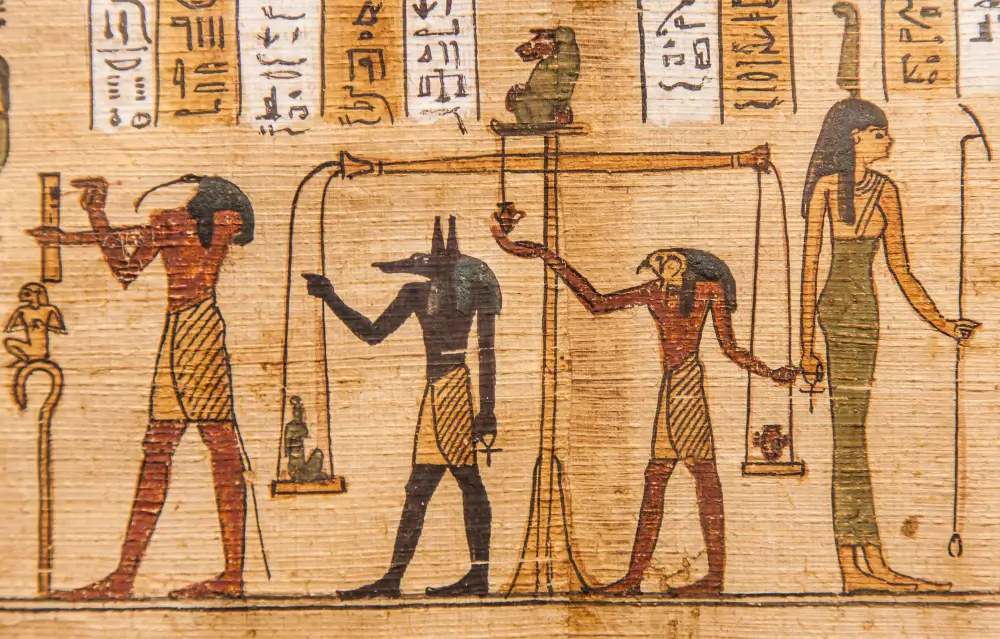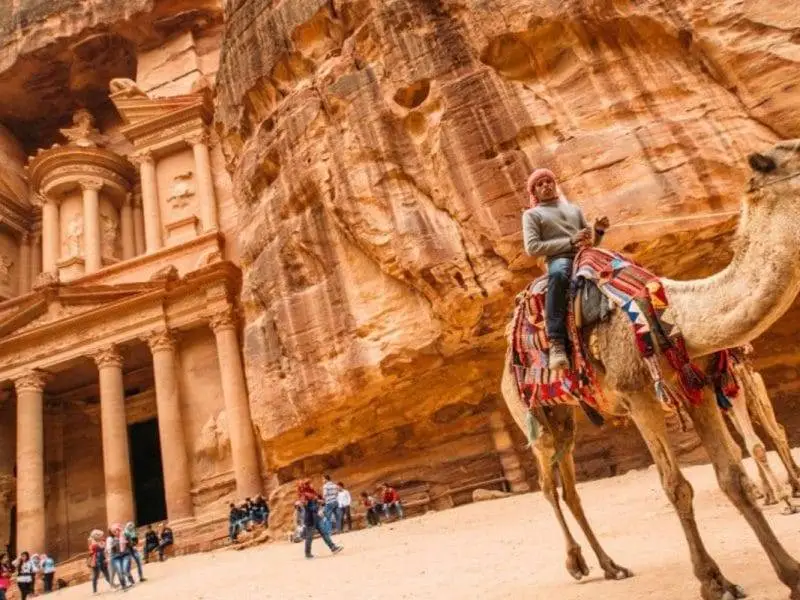More Than Water: Unlocking the Agricultural Secrets of Why was the Nile River important to ancient Egypt

If you’ve ever wondered why was the Nile River important to ancient Egypt, the answer is simple: without the Nile, ancient Egypt as we know it wouldn’t have existed.
This single river shaped the kingdom’s agriculture, economy, religion, transportation, and daily survival. In a landscape dominated by desert, the Nile was more than water — it was life, stability, and the foundation of one of history’s greatest civilizations.
From predictable floods that nourished farmlands to the trade routes that connected towns and temples, the Nile shaped every part of Egyptian society. Understanding its role gives us a clearer picture of how Egypt thrived for thousands of years.
Why was the Nile River important to ancient Egypt?
The Nile River was the lifeline of ancient Egypt. In an environment almost entirely covered by desert, the Nile made agriculture, settlement, and civilization possible. Without it, Egypt would have been an uninhabitable stretch of sand.
1. It Provided Water and Fertile Land
Every year, the Nile flooded and left behind rich, fertile silt, perfect for growing crops. This predictable cycle allowed Egyptians to grow wheat, barley, flax, vegetables, and fruit — the basis of their entire food supply.
2. It Supported Agriculture and Food Surplus
The river’s water made irrigation possible, helping farmers produce more food than they needed. This surplus allowed society to develop specialists: priests, craftsmen, builders, and scribes.
3. It Enabled Trade and Transportation
The Nile was the main highway of ancient Egypt. Boats carried:
-
Goods
-
Stone blocks
-
Food supplies
-
People
Traveling by water was faster and easier than crossing desert land.
4. It Influenced Religion and Daily Life
Egyptians viewed the Nile as a sacred gift from the gods. They believed the annual flood was a blessing from Hapi, the god of the Nile. Many religious rituals and festivals were linked to the river.
5. It Boosted the Economy
The Nile allowed Egypt to trade grain, gold, papyrus, and linen with neighboring regions. This made Egypt wealthy and powerful.
6. It Shaped the Geography of Civilization
Most ancient Egyptian cities — including Memphis, Thebes, and later Alexandria — were built along the Nile. It determined where people lived and how the society grew.
7. It Provided Natural Protection
The desert around the Nile protected Egypt from many invasions, allowing the civilization to develop peacefully for long periods.
In Short
The Nile was important because it provided:
-
Water
-
Food
-
Transportation
-
Trade opportunities
-
Religious meaning
-
Economic strength
-
A safe place to build a civilization
Without the Nile, ancient Egypt simply could not have existed.
What is the historical significance of the Nile River?
The Nile River is one of the most historically influential waterways in human history. For ancient Egypt, it wasn’t just a river — it was the foundation of the entire civilization, shaping its agriculture, economy, religion, culture, and political power for thousands of years.
A Source of Life in the Desert
The Nile turned a harsh desert landscape into fertile land. Its annual floods deposited nutrient-rich silt, enabling sustainable farming and supporting a large, stable population long before modern technology.
Birthplace of One of the World’s Earliest Civilizations
Civilizations normally emerge where water, food, and predictable resources exist. The Nile provided all three, allowing ancient Egypt to develop:
-
Complex cities
-
Monumental architecture
-
A structured government
-
Advanced engineering and writing systems
Center of Trade and Transportation
The Nile acted as Egypt’s main transportation route, making it easy to move:
-
People
-
Stones for pyramids and temples
-
Food and goods
-
Messages and officials
This helped unify Upper and Lower Egypt into one kingdom.
Religious and Cultural Influence
The Nile shaped Egyptian beliefs. The flood cycle was seen as a divine gift from the gods, and the river featured in:
-
Myths
-
Rituals
-
Festivals
-
Art and poetry
It wasn’t just physically essential — it was spiritually central.
Economic Strength and International Power
With fertile land and surplus crops, Egypt became a major exporter of:
-
Grain
-
Papyrus
-
Linen
-
Gold (from Nubia using Nile routes)
This wealth helped the civilization flourish and maintain long periods of political stability.
Geopolitical Importance
The Nile acted as a natural barrier, protected by deserts on both sides. This allowed Egypt to avoid many invasions and grow relatively undisturbed compared to other ancient cultures.
In Summary
The Nile’s historical significance lies in its role as:
-
The lifeline of ancient Egypt.
-
A driver of population growth and settlement.
-
A catalyst for political unity and economic power.
-
A major influence on religion and cultural identity.
-
One of the reasons Egypt became a cradle of civilization.
Read:
Where is the Nile River?
The Nile River flows through northeastern Africa, stretching across 11 countries before reaching Egypt and emptying into the Mediterranean Sea. It is widely known as the longest river in the world or one of the two longest, depending on measurement.
Key Locations Along the Nile
-
The river has two main tributaries:
The White Nile (begins in East Africa, often linked to Lake Victoria)
The Blue Nile (starts in the Ethiopian Highlands) -
These tributaries meet in Khartoum, Sudan, forming the Nile that continues north into Egypt.
Countries the Nile Flows Through
The river passes through or touches:
Uganda • Tanzania • Rwanda • Burundi • Kenya • Ethiopia • South Sudan • Sudan • Egypt • Eritrea (via tributaries) • Democratic Republic of the Congo (basin)
Where It Ends
- The Nile flows all the way north through Egypt and empties into the Mediterranean Sea via the Nile Delta — one of the most fertile regions on Earth.
- In Egypt, nearly all major ancient cities — like Luxor, Aswan, Memphis, and Cairo — are located along its banks.
The Fall and Rise of the Nile
The story of the Nile isn’t just about its role in ancient Egypt — it’s also about how its power changed over time. From a river that dictated life and prosperity to one controlled by modern engineering, the Nile has seen moments of decline and renewal throughout history.
The Fall: When the Nile’s Influence Declined
As Egypt moved into later historical periods, its dependence on the natural flood cycle became less reliable. Several factors contributed to the river’s “fall” in influence:
-
Unpredictable Floods
Some years brought low floods, causing famine. Other years brought destructive high floods that washed away crops and homes. -
Shifts in Regional Power
After periods of foreign rule — including Persian, Greek, Roman, and Ottoman eras — Egypt’s management of the river became more fragmented. -
Changes in Technology & Infrastructure
The natural flood cycle, once essential, became less practical as modern agriculture and urban centers expanded.
The Rise: Modern Control and Renewed Importance
In the 19th and 20th centuries, Egypt entered a new era of controlling the Nile instead of relying on its unpredictable nature.
-
Construction of Barrages and Dams
Dams such as the Aswan Low Dam (1902) and later the Aswan High Dam (1970) transformed Egypt’s ability to regulate water. -
End of Destructive Floods
The High Dam gave Egypt full control over water flow, protecting farmland and cities from extreme flooding and drought. -
Expansion of Agriculture and Energy
The regulated water supply enabled year-round farming and supported millions of people.
The High Dam also generated significant hydropower, contributing to Egypt’s energy needs. -
Modern Urban Growth Along the Nile
Cities like Cairo, Luxor, and Aswan expanded, reconnecting modern Egyptian identity with the river.
A Symbol of Continuity
Today, the Nile remains central to Egyptian life — not because of its ancient flood cycle, but because it continues to supply:
-
Water
-
Agriculture
-
Energy
-
Transportation
-
A deep cultural and historical identity
The river has shifted from a natural force Egyptians depended on to a resource they actively manage.
Also read:
A Revolution in Food Production
The Nile didn’t just support agriculture in ancient Egypt — it revolutionized the way food was produced. In a world where most civilizations relied on unpredictable rainfall, Egypt developed one of the earliest and most efficient agricultural systems thanks to the river’s dependable rhythm.
Predictable Flood Cycles
Each year, the Nile flooded its banks and deposited nutrient-rich silt onto the fields. This natural fertilization created some of the most productive farmland in the ancient world.
-
Good floods meant abundant harvests.
-
Poor floods could mean famine — which is why the Nile’s cycle was closely watched and deeply respected.
Birth of Large-Scale Irrigation
Egyptians engineered canals, basins, and levees to control and distribute water more effectively. These innovations allowed them to:
-
Grow food year-round.
-
Expand farming far beyond the river’s edge.
-
Support a growing population and powerful state.
This system was so advanced that elements of it lasted well into the modern era.
Surplus That Fueled Civilization
Because the Nile provided consistent food production, Egypt was able to produce more than it needed. This surplus allowed:
-
The rise of craftsmen, priests, scribes, and builders.
-
Monumental projects like pyramids and temples.
-
Strong trade networks exporting grain, papyrus, and linen.
Without this agricultural revolution, Egypt would not have grown into a global ancient powerhouse.
A Foundation for Stability
In a region surrounded by desert, the Nile’s reliable food supply made Egypt unusually stable compared to other ancient societies. When neighboring civilizations collapsed due to drought or war, Egypt often remained secure and prosperous.
Could the ancient Egyptians survive without the Nile river?
In simple terms: No — ancient Egyptians could not have survived without the Nile River.
The Nile wasn’t just helpful; it was the absolute foundation of their existence. Without it, Egypt would have been an empty, uninhabitable desert.
Why Survival Without the Nile Was Impossible
A Desert Without Water
Over 95% of Egypt is desert. Without the Nile, there would be:
-
No reliable source of fresh water
-
No fertile land
-
No ability to grow food
-
No settlements or cities
Life simply could not be sustained.
Agriculture Depended Entirely on the River
The Nile’s annual floods created the only farmland available. Without it:
-
No wheat or barley
-
No vegetables or flax
-
No food surplus to support a population
-
No economy or trade networks
Ancient Egypt’s agricultural system existed because of the Nile.
Transport and Trade Would Collapse
The Nile was Egypt’s main transportation route — like a natural highway through the desert.
Without it:
-
Moving goods would be nearly impossible
-
Cities could not connect
-
Trade would break down
-
Political unity between Upper and Lower Egypt wouldn’t have formed
Religion and Culture Were Tied to the River
The Nile shaped:
-
Festivals
-
Myths
-
Gods (e.g., Hapi, Osiris)
-
Seasonal calendars
It influenced everything from farming to spirituality.
The Bottom Line
The Nile was not optional for ancient Egypt — it was the reason the civilization existed at all.
Without the river, there would be:
-
No pyramids
-
No temples
-
No pharaohs
-
No writing system
-
No ancient Egyptian civilization as we know it
Why was the Nile river so important to religion and farming in ancient Egypt?
The Nile River was at the center of both spiritual life and agricultural survival in ancient Egypt. It wasn’t just a river; it was the force that shaped the entire worldview of the Egyptians — how they farmed, how they prayed, and how they understood the universe.
1. Importance to Farming
A. The Annual Flood Provided Fertile Soil
Every year, the Nile overflowed its banks and deposited nutrient-rich black silt on the fields. This natural fertilization was the reason Egypt could grow:
-
Wheat
-
Barley
-
Flax
-
Vegetables and fruits
Without this silt, the land would have been dry desert.
B. Predictable Seasons Created a Reliable Food System
The Nile’s cycle created three major seasons:
-
Akhet — the flood season
-
Peret — the growing season
-
Shemu — the harvest season
This predictable structure helped Egyptians organize their entire agricultural year, making farming efficient and sustainable.
C. Irrigation Networks
Egyptians developed canals, basins, and channels to spread Nile water to wider areas. This allowed them to farm:
-
In dry months
-
Beyond the immediate riverbanks
-
On a large, organized scale
The Nile made mass agriculture possible.
2. Importance to Religion
A. The Nile Was Seen as a Gift from the Gods
Egyptians believed the river’s flood was a divine blessing — essential for life. The god Hapi was worshipped as the god of the Nile’s inundation, responsible for fertility and abundance.
B. Religious Myths Connected the Nile to Creation
Many myths linked the river to life and rebirth:
-
The Nile’s flow symbolized renewal
-
Its annual flood represented resurrection
-
Osiris, the god of the afterlife, was believed to be connected to the life-giving silt
In their belief system, water = life, and no water was more sacred than the Nile.
C. Temples and Rituals Along the River
Many temples were built close to the Nile, and rituals depended on the river’s behavior. Priests monitored flood levels because:
-
High floods meant prosperity
-
Low floods meant danger or famine
Religion and observation of the Nile went hand in hand.
D. The Nile Shaped the Egyptian View of Order
The river’s reliable cycle represented ma’at — the concept of cosmic order and balance.
Its consistency reinforced the idea that the gods supported Egypt and its people.
In Summary
Farming:
-
Nile = fertile soil
-
Nile = predictable seasons
-
Nile = irrigation and food security
Religion:
-
Nile = divine gift
-
Nile = symbol of life, rebirth, and balance
-
Nile = heart of rituals, myths, and temple traditions
What are 5 reasons why the Nile river was important?
The Nile River was essential to ancient Egypt’s survival and success. Here are the five most important reasons:
Farming and Food Production
The Nile’s annual floods left behind fertile black silt, making agriculture possible in an otherwise desert landscape. This allowed Egyptians to grow wheat, barley, fruits, and vegetables.
Fresh Water Supply
It was the main source of drinking water and essential for daily life — bathing, cooking, cleaning, and sustaining animals.
Transportation and Trade
The Nile acted as a natural highway. Boats carried people, goods, building materials, and crops up and down the country, connecting cities and boosting the economy.
Religious and Cultural Significance
Egyptians believed the Nile’s floods were gifts from the gods. It shaped myths, rituals, and festivals, and represented life, rebirth, and cosmic order.
Protection and Settlement
The river’s path determined where people lived. Towns and cities formed along its banks, while the surrounding deserts protected Egypt from many invasions and helped maintain stability.
Suggested:
FAQ
Why was the Nile River important to ancient Egypt?
Because it provided water, fertile soil, transportation, trade routes, and a stable environment that allowed the civilization to grow and flourish.
What did the Nile River provide for farming?
The annual flood deposited nutrient-rich black silt that made the land extremely fertile, allowing Egyptians to grow essential crops like wheat and barley.
How did the Nile affect ancient Egyptian religion?
Egyptians believed the Nile’s flood was a divine blessing. They worshipped Nile-related gods such as Hapi and linked the river to life, rebirth, and cosmic balance.
Did ancient Egyptians drink Nile water?
Yes. The Nile was their primary source of fresh water for drinking, cooking, and daily activities. They also developed filtration methods to improve water quality.
How did the Nile help with transportation?
It was Egypt’s main highway. Boats moved people, goods, crops, and building materials up and down the country more easily than by land.
Why did most ancient Egyptians live near the Nile?
Because the surrounding land was desert. Settling near the river provided water, fertile land, food, and access to trade routes.
Could ancient Egypt have survived without the Nile?
No. The civilization depended entirely on the river for food, water, transportation, and economic stability.
Where does the Nile River flow?
It flows through northeastern Africa, starting from its tributaries in East Africa and Ethiopia, meeting in Sudan, and continuing north through Egypt to the Mediterranean Sea.
What were the main crops grown along the Nile?
Wheat, barley, flax, vegetables, and fruits — all essential for food, clothing, and trade.
How did the Nile River help unite Egypt?
The river acted as a natural link between Upper and Lower Egypt, allowing communication, trade, and political unity across the kingdom.
Conclusion
The Nile River was far more than a geographic feature — it was the force that shaped every aspect of ancient Egyptian life.
Its predictable floods created fertile land, its waters supported farming and daily survival, and its long, navigable route connected towns, temples, and trading centers across the kingdom.
Spiritually, the Nile represented life, rebirth, and divine order, making it central to the beliefs and rituals of the ancient Egyptians.
Without the Nile, Egypt’s great civilization — its pyramids, cities, culture, and achievements — simply would not have been possible.
Understanding the river’s role offers a clearer picture of how a desert nation became one of the most enduring and influential civilizations in human history.



Leave a Reply